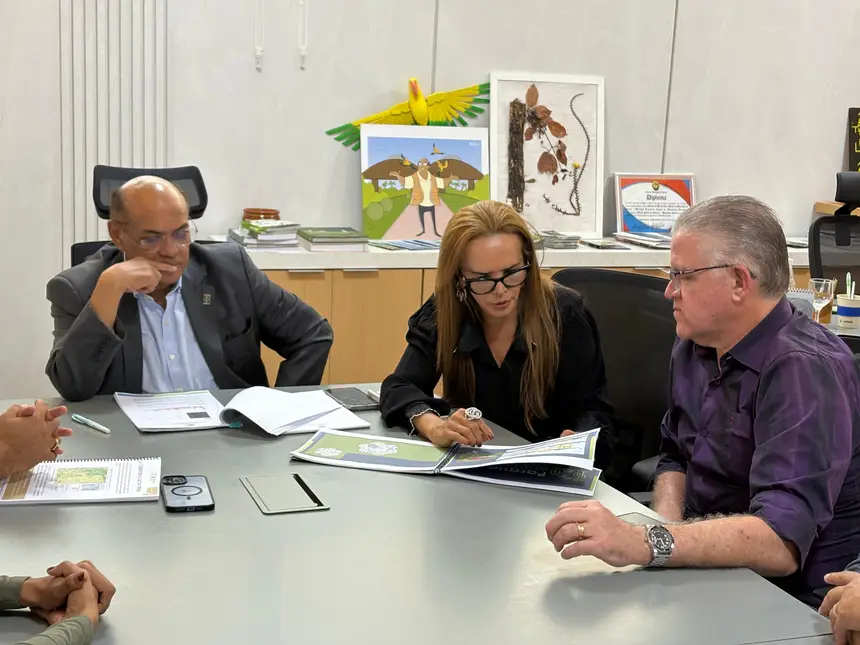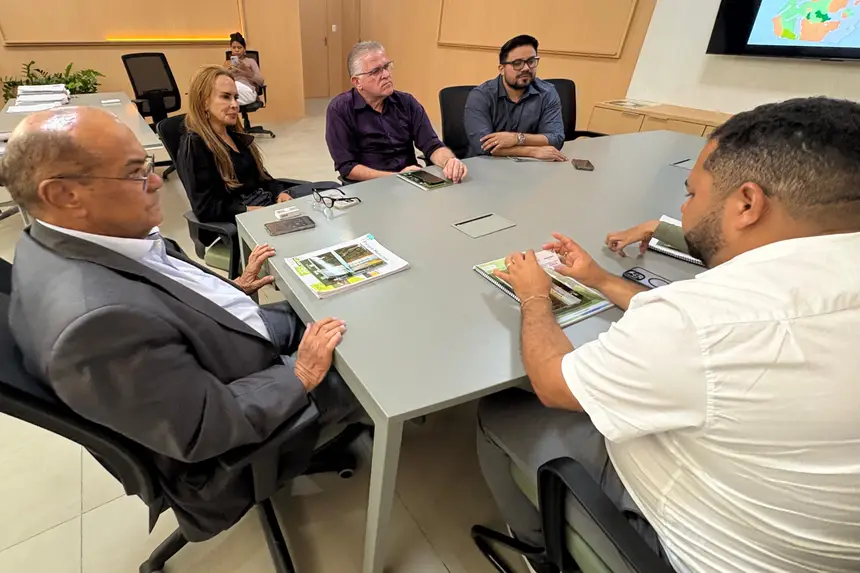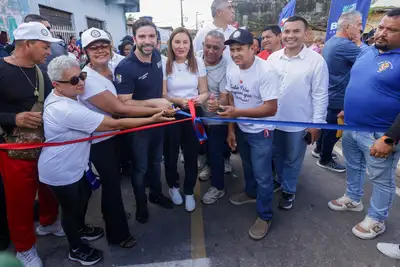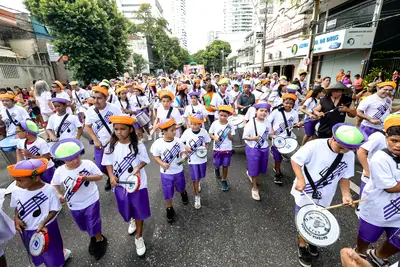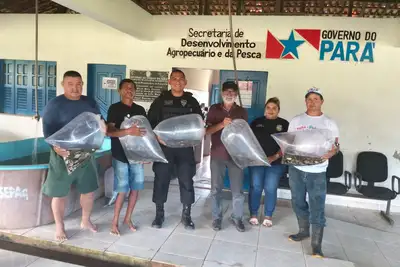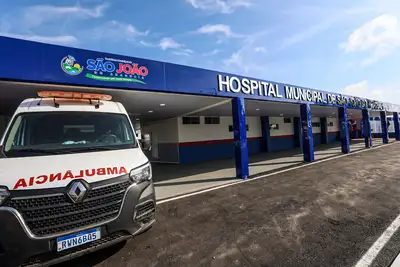In partnership with Ideflor-Bio, São Domingos do Capim advances in the creation of a Municipal Forest
The city hall presented the technical project developed by its team and requested the institutional support of Ideflor to make the initiative feasible
The president of the Institute of Forest Development and Biodiversity (Ideflor-Bio), Nilson Pinto, received on Tuesday (1st) the mayor Orivaldo das Neves Oliveira (Orivaldo Bateria) from São Domingos do Capim to discuss the creation of the municipality's first Municipal Forest in northeastern Pará. During the meeting, held at the Institute's headquarters in Belém, the mayor presented the technical project developed by his team and requested the institutional support of Ideflor-Bio to make the initiative feasible.
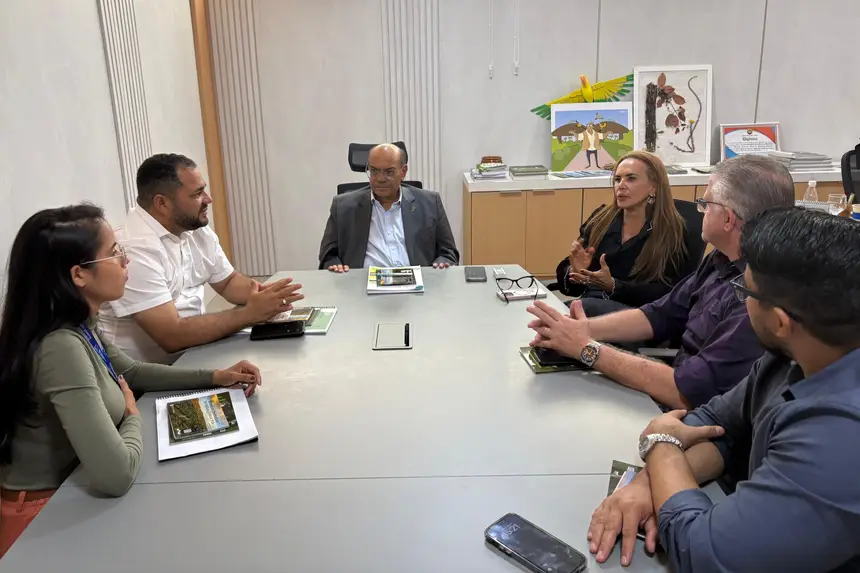
The proposal is aligned with Law No. 766/2023, sanctioned by Governor Helder Barbalho, which created the Policy and the State System of Conservation Units of Pará (Peuc/Seuc). Among the innovations of the legislation, developed jointly by the State Secretariat for the Environment, Climate and Sustainability (Semas) and Ideflor-Bio, is the creation of three unprecedented categories of protected areas in the State: Municipal Forests, State Fishing Reserves, and Special Protection Rivers.
Articulation - During the meeting, the president of Ideflor-Bio committed to providing the necessary technical support for the implementation of the Municipal Forest of São Domingos do Capim, offering guidance on planning, environmental management, and regularization of the unit. The Institute's Management Advisor, Lena Pinto, highlighted the importance of the articulation between the State and municipalities to expand the network of protected areas in Pará.
According to Mayor Orivaldo Bateria, the initiative arises from local demand for more green spaces and leisure areas for the population. According to him, the forest will be a multifunctional space that will bring together conservation, environmental education activities, and community recreation. “The population of São Domingos do Capim deserves a space like this, which values nature and encourages new generations to connect with the environment,” emphasized the municipal manager.
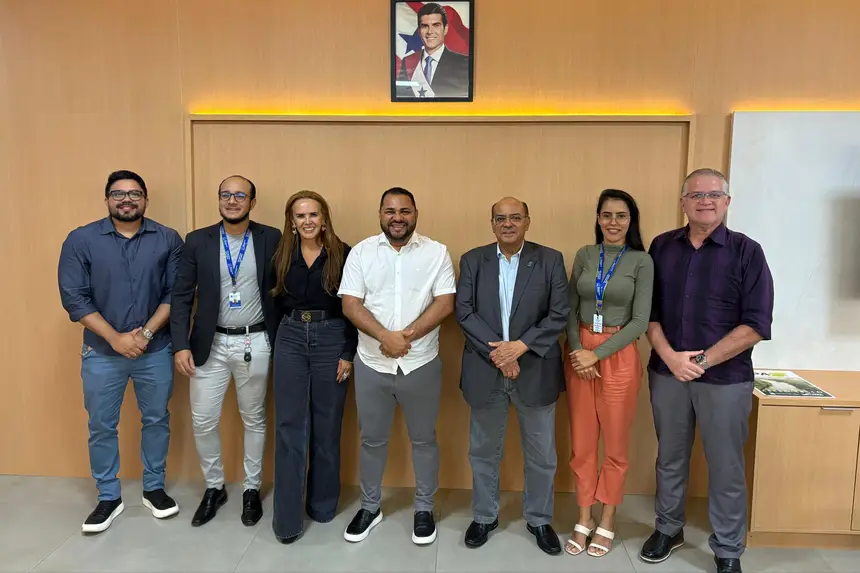
Advantages - Municipal Forests have been encouraged as a low-cost and highly relevant alternative for Pará municipalities that wish to expand urban green areas. Municipalities such as Palestina do Pará and São João do Araguaia, in the Southeast region, are already in the process of structuring their forests, while Xinguara, in the same region, has also shown interest in adopting the model. The creation of these areas contributes to the conservation of biodiversity, urban microclimate, and the quality of life of residents.
For Nilson Pinto, the movement of municipalities is a demonstration that the State's environmental policy is being effective and inspiring. “Our goal is to support municipalities in structuring these new Conservation Units, ensuring benefits for both nature and local communities. Municipal Forests represent a step forward in environmental management, promoting accessible green spaces and contributing to urban sustainability,” he stated.
Regularity - The legislation provides that Municipal Forests be formalized by decrees from the city halls, based on technical criteria and state guidelines. The support from Ideflor-Bio ensures that these units are implemented efficiently and integrated into the state conservation network, strengthening the decentralization of environmental policy in Pará.
With the support of the Institute, São Domingos do Capim is advancing to become one of the pioneering municipalities in the implementation of Municipal Forests in the State. The expectation is that, in the coming months, the technical project will receive final adjustments and the chosen area will begin to be structured, directly benefiting the population and the local environment.



